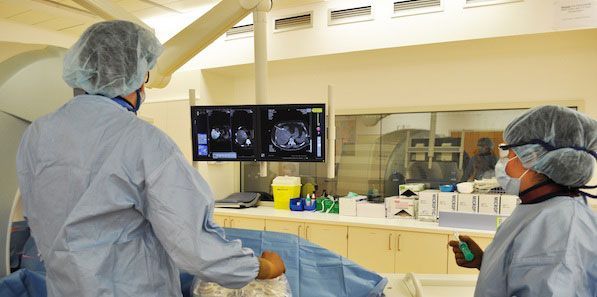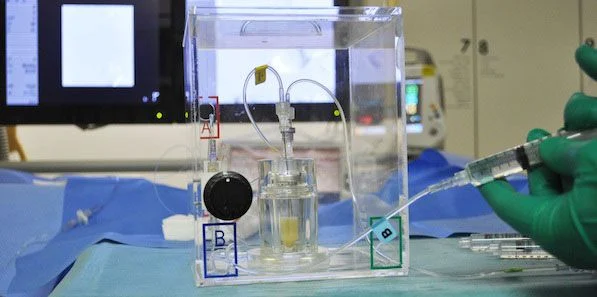- The European Conference on Interventional Oncology presents new ways to treat cancer
- Over 1,000 medical professionals from around the world are expected to attend
The world’s leading radiologists, oncologists and surgeons will be coming to Germany this April for the European Conference on International Oncology (ECIO), held at the Estrel Convention Center in Berlin from April 23rd to April 26th, 2014.
As one of the most important international forums for medical professionals and experts in interventional oncology, a specialised form of interventional radiology, ECIO 2014 will highlight innovative ways to diagnose and treat cancer. Key topics will include minimally invasive therapies for the treatment of lung, kidney and liver cancer. Image-guided interventional oncological procedures provide minimally invasive alternatives to complicated surgeries without full anaesthesia, often leading to reduced hospital stays, fewer treatment side effects and increased quality of life for patients.
“Germany is one of the leaders in Europe’s health industry; it offers an excellent research infrastructure and some of the best medical facilities. We are excited to invite the world’s leading physicians in the field of minimally invasive cancer therapy to Berlin for the first time and to showcase some of the most innovative image-guided methods for the treatment of tumours”, explains Professor Philippe L. Pereira, Clinic Director at the Cancer Center SLK-Kliniken Heilbronn.
Over 1,000 participants from more than 60 countries are expected to attend ECIO 2014, which is being organised by the Cardiovascular and Interventional Radiological Society of Europe (CIRSE), with headquarters in Vienna, Austria.

Advances in the treatment of lung and liver cancer
According to predictions by the World Health Organization (WHO), the number of cancer patients will continuously increase until 2030. In 2012, approximately 8.2 million people died of different forms of cancer. For this reason, there is an urgent need to find new, innovative methods to diagnose and treat the disease. Interventional oncology – a specialised form of interventional radiology – has made significant headway in treating kidney, lung and liver carcinoma in recent years. The procedures target only the affected tissue, minimising the effects on the rest of the body.
Focused treatment of tumours
Interventional oncology encompasses a range of techniques, such as thermal ablation, in which a tiny probe is inserted directly into the tumour and extreme temperatures (either heat or cold) are used to destroy the tumour cells. These treatments can be used for patients suffering from liver, kidney or lung cancer.
Alternatively, microparticles loaded with cancer-fighting medication can be administered directly into the affected tissue using a catheter under image guidance. As only cancer cells are targeted medication dosages can be significantly higher than those used in conventional chemotherapy. This approach increases the likelihood of destroying the tumour – while at the same time limiting possible side effects for the patients.
In another treatment modality known as radioembolisation, radioactive agents are inserted into the feeding vessel of the tumour in order to cut off its blood supply, eventually destroying it.
By combining treatments from interventional oncology with surgery and chemotherapy, the number of successful outcomes can be increased for cancer patients. Interventional oncological treatments are minimally invasive and can be carried out through a tiny nick in the patient’s skin. This lowers the surgical risks for the patients, reduces post-treatment recovery times and also leads to a substantial increase in the survival rates for a large number of selected cancer types.
Source: ECIO
28 March 2014
Latest Articles
Cancer, Oncology, Tumours, Chemotherapy, ECIO, ECIO 2014, ECIO 2014 Berlin, interventional radiology, cancer treatment, interventional oncology
The European Conference on Interventional Oncology presents new ways to treat cancer Over 1,000 medical professionals from around the world are expected t...










